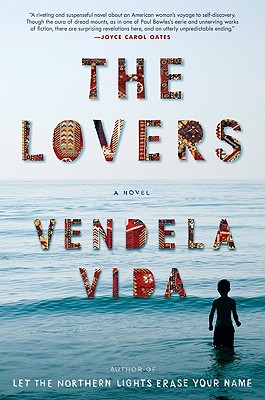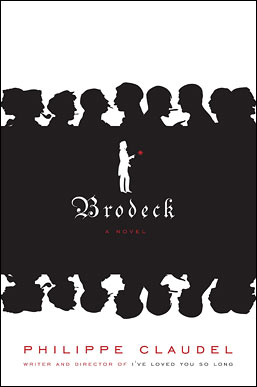The Lovers by Vendela Vida. This is a book that I enjoyed so much; I highly recommend it. I hope this doesn't sound too pretentious on my part, but I feel like Vida's writing can only get better, and she is definitely one to watch. This novel takes place in Turkey when the protagonist goes there on a trip after her husband dies. Suddenly alone and forced to do things for herself, she flounders a bit, both physically and emotionally. As we watch her make some surprising, if not poor decisions, we slowly get to know this woman and wonder if she's ever known herself.
This is one of the best books I've read recently for putting me in a place. Vida evoked Turkey for me and made me want to be there. This novel is a winner.
Ethan Frome by Edith Warton. I practically read this classic in one sitting--I was riveted.
It's short, a novella really, and it's so compelling; I only put it down because I knew I had to get up early the next morning. Which I did, only to immediately pick up the book and finish it! This was, I am sorry to admit, my first experience with Edith Wharton. Shocking, but true.
 I suppose what hooked me at first was the mystery. The narrator is wondering, and makes the reader wonder along with him, what has made Ethan Frome the bent and broken man he seems to be. The narrator is obsessed with Ethan and so perhaps this is why he can articulate Ethan's story so well. For Ethan, in turn, is obsessed with a lady, a lady who is not his wife.
I suppose what hooked me at first was the mystery. The narrator is wondering, and makes the reader wonder along with him, what has made Ethan Frome the bent and broken man he seems to be. The narrator is obsessed with Ethan and so perhaps this is why he can articulate Ethan's story so well. For Ethan, in turn, is obsessed with a lady, a lady who is not his wife.Who knew I'd be swept along in a romantic triangle in a time of restraint and austerity. And the landscape, a huge character in the story, is a perfect metaphor for the restrained passions of Ethan and his object of affection. I would be surprised to find anyone who doesn't like this book. Almost as surprised as I was at the ending of it!
The Cookbook Collector by Allegra Goodman. I picked up this book because I read an article in The Guardian that compared it to Franzen's Freedom, stating that Goodman's book was just as good, if not better than Franzen's, but Freedom gets all the attention because the novel, like the author of it, are loud and in-your-face whereas Goodman and her novel are more nuanced and subtle.
Well, I'm not sure I agree with any of that, but I did enjoy The Cookbook Collector. It takes place in the Bay Area, and follows various people's lives, one of whom collects, you guessed it--rare cookbooks. To attempt a cooking metaphor here: at times I thought the author, as cook, threw a few too many ingredients in the pot and the flavors became too muddied; I would have preferred fewer and more distinct characters and subplots. Having said that, this is a very readable book, and one that I think book clubs would enjoy discussing.
What about you? What have you read lately?















